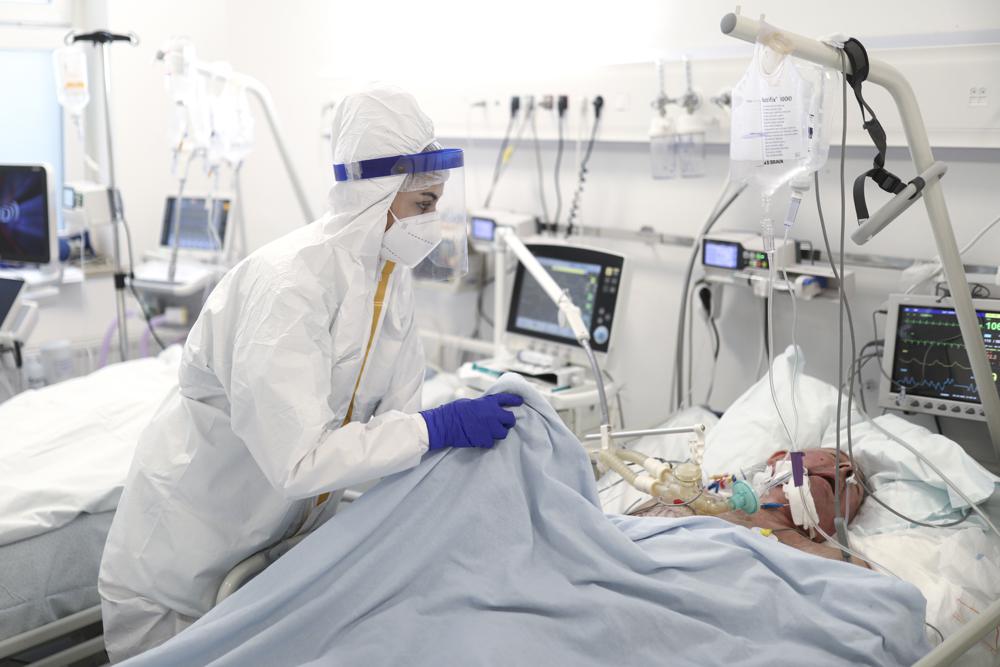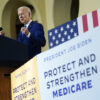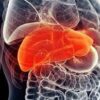A member of the medical staff attends to a patient at the COVID-19 ICU unit of the Dr. Abdulah Nakas General Hospital in Sarajevo, Bosnia, Friday, Sept. 24, 2021. Public mistrust of authorities in corruption-plagued Bosnia has created an opening for anti-vaccination movement even though the Balkan nation has the highest rate in Europe of coronavirus deaths and faces a growing number of new infections. So far, despite an abundance of coronavirus vaccines in Bosnia, just under 13 percent of its 3.3 million people had been fully immunized against Covid-19. (AP Photo)
SARAJEVO, Bosnia-Herzegovina (AP) — Hospitals across Bosnia are again filling with COVID-19 patients gasping for air, and the country’s pandemic death toll is rising. Yet vaccination sites are mostly empty and unused coronavirus vaccines are fast approaching their expiration dates.
When the European Union launched its mass vaccination campaign, non-member Bosnia struggled along with most other Balkan nations to get supplies. By late spring, however, hundreds of thousands of doses started pouring into the country.
But after an initial rush of people clamoring to get jabbed, demand for shots quickly slowed. It is now down to a trickle even though Bosnia has Europe’s highest coronavirus mortality rate at 4.5%, according to Johns Hopkins University data.
Dr. Edin Drljevic, an infectious disease specialist at one of Bosnia’s largest hospitals, in Sarajevo, thinks the disconnect is partly a result of authorities failing to properly promote vaccination against COVID-19.
“At first, we only had negative publicity because of the failure to secure vaccines, but once the vaccines finally started arriving, mainly through donations, people became picky,” he said.
So far, just under 13% of Bosnia’s 3.3 million people have been fully vaccinated, among the lowest shares in Europe. Even people willing to get inoculated are putting off shots so they can choose the vaccine they want instead of receiving whichever one is available.
Bosnia currently administers the Pfizer-BioNTech, Sputnik V, Sinopharm and AstraZeneca vaccines. AstraZeneca’s product, while the most widely available, appears to enjoy the least trust because of extensive news coverage when numerous European countries temporary suspended its use due to concerns about possible, rare side effects.
“The bottom line is, people are poorly informed and lack up-to-date knowledge,” Drljevic said.
With so few takers, over 50,000 AstraZeneca vaccine doses have already expired; an additional 350,000 doses are set to expire in October
The pandemic has amplified the many problems of the Balkan nation, which is still struggling to recover from a devastating interethnic war in 1992-95. Nearly half of Bosnia’s people live under or close to the poverty line.
The country has an extreme shortage of doctors and nurses, as well as rampant public corruption. Several elected and appointed government officials are under investigation or on trial for suspected malfeasance in the procurement of needed medical equipment and supplies during the pandemic.
The high-profile cases make Bosnians susceptible to claims that their leaders are acting in concert with corrupt pharmaceutical companies and are “happy to sacrifice them” for personal gain, according to Slavo Kukic, a sociology professor at Mostar University in southern Bosnia.
“People in Bosnia generally distrust the authorities. They are being lied to and manipulated for the past 30 years, and it makes it easier (for the anti-vaccine movement) to convince them that it is wise to not protect themselves from the virus, that it is a risk worth taking,” Kukic said.
Health professionals and vaccine recipients note the absence of a coordinated, hard-hitting national campaign to counter vaccine hesitancy. There are no public service ads, billboards, incentives or mass mailings encouraging people to get vaccinated or advising them how.
Meanwhile, activists with strong anti-vaccine beliefs dominate the discussion on social networks and in the comment sections of news sites.
An opposition lawmaker, Lana Prlic, announced on Facebook last week that she had received her second dose of AstraZeneca vaccine and urged followers to get their shots as soon as possible “to protect themselves and others.” Her post attracted over 28,000 comments in 24 hours, most of them filled with hate, insults and misinformation.
Jagoda Savic, Bosnia’s most vocal anti-vaccination activist for over a decade, asserts with pride that her profile has grown during the pandemic.
“People stop me in the street to say hello, to congratulate me and ask me to keep up the good work,” she said. “I get so many messages (of support) on Facebook that I can no longer respond to all of them.”
Savic maintains that coronavirus vaccines were not put through standard safety testing before being approved for use, they contain that they contain a compound made from graphite, and graphene and have caused severe adverse reactions in 1.2 million people in the European Union, the United Kingdom and the United States.
Similar claims have been made in other countries, and scientists and health authorities have repeatedly rejected them. Savic countered that information from official sources may cause doubts about the dangers of vaccines, but “in their heart and soul, people know the truth.”
Bosnia has reported close to 240,000 confirmed cases and more than 10,500 deaths in the pandemic. Savic asserts the figures are inflated, arguing incorrectly that that molecular PCR tests – the primary method for diagnosing COVID-19 — produce a huge number of false positives.
“Unfortunately, I have the impression that we are simply letting anti-vaccination lobbies and movements highjack the public debate and spread misinformation that discourages people from getting immunized,” Bakir Nakas, a retired infectious disease specialist, said.
While waiting to get her second coronavirus vaccine shot in Sarajevo last week, cancer patient Mirjana Golijanin said she thinks some fellow Bosnians are refusing as a way to oppose the powerful and rich.
“I think it is simply an expression of the need to offer some sort of resistance, even if all they are resisting is a vaccine,” Golijanin said.
Copyright 2021 Associated Press. All rights reserved.









































